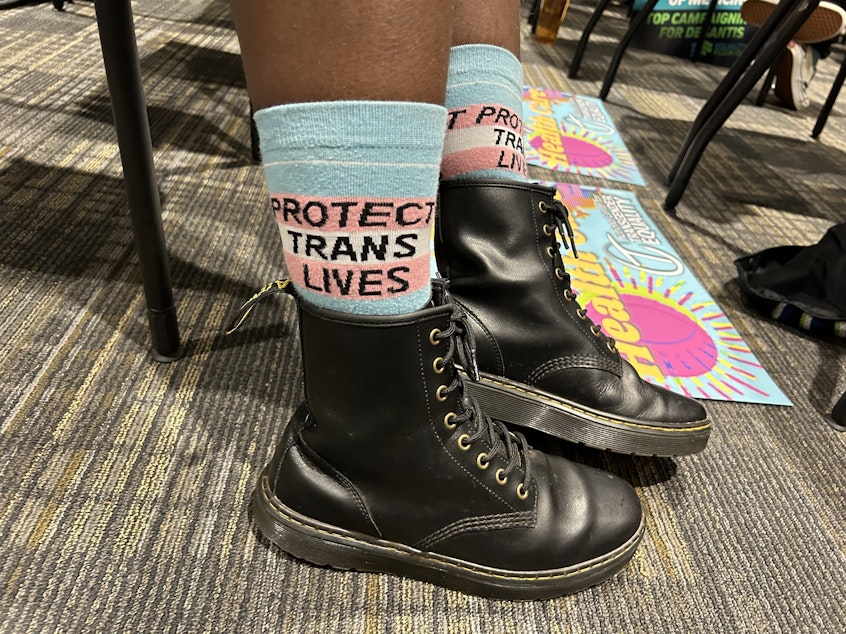Is Seattle becoming a trans haven? LGBTQ+ groups say demand for services is on the rise

Seattle LGBTQ+ groups say requests to help trans people are on the rise as dozens of measures opposing transgender rights have been passed or introduced in state legislatures across the country.
Jesse Alalawi is a program director for Peer Seattle and one of the group's first transgender employees.
Alalawi said she tries to make sure trans people find help within a loosely knit network of advocacy groups, especially those who understand the needs of the LGBTQ+ community.
“We do try to work together, and we do often help the same individuals, kind of creating a care team around an individual and helping them on their journey to survival,” she said.
Alalawi also heads up an online and in-person community group called Trans is Beautiful. She said she’s seen an increase in trans people seeking resources over the past few months.
Recently, a trans-masc person from Tennessee reached out to the group through one of its web sessions. Trans-masc is short for trans-masculine and refers to a person whose gender identity aligns more closely with masculinity but was not assigned male at birth.
Sponsored
“They were experiencing a lot of the hardships that we hear about day to day, and they wanted to learn more, wanted to know about our organization, wanted to know about the resources in our city,” Alalawi said.
They wanted to know if Seattle was a safe place to live.
“And then a few weeks later, that member showed up at our door on a Sunday when Trans Is Beautiful comes," Alalawi said. "He now has a community that he participates in and is able to live a more authentic life for himself.”
Alalawi said she's often working in collaboration with other nonprofits to provide resources for trans people seeking resources and refuge in Seattle.
People from other organizations have also had people from other states wanting to learn how to best serve transgender people in their own communities. Alalawi said this influx of questions and inquiries shows a greater need for more resources, like money for the work nonprofits do in the Seattle area.

